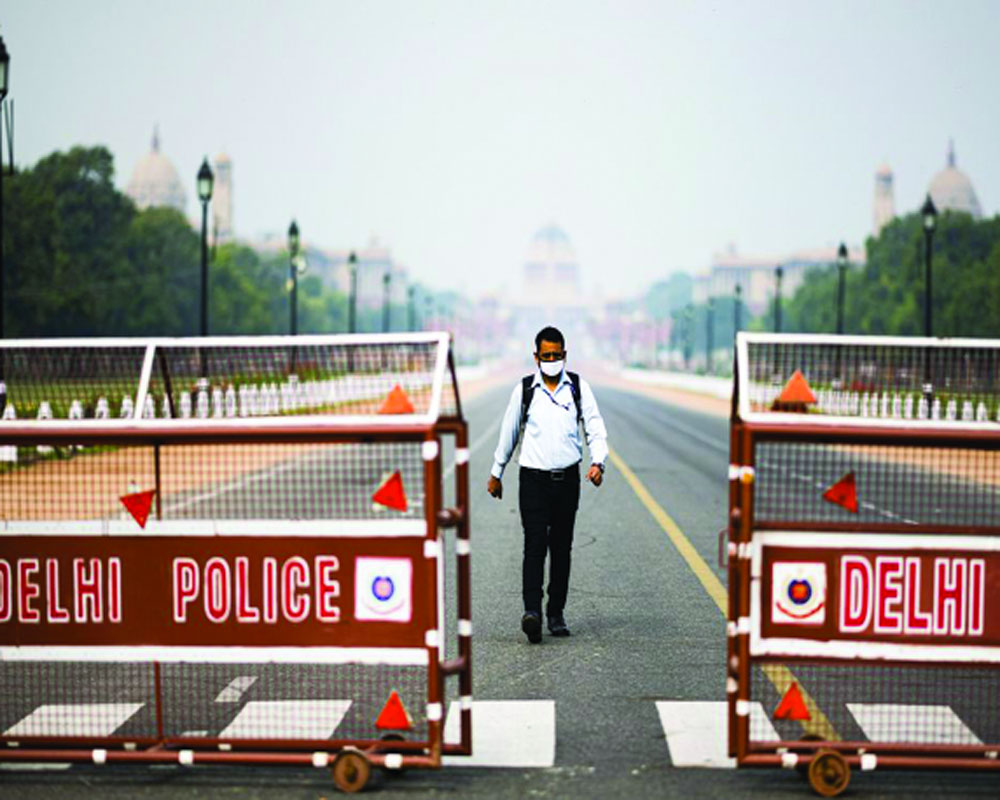It may have come a bit late but only operational efficiencies will prove if we can win this battle against COVID-19
Maybe it came a little too late in the day, considering it was the world’s biggest social experiment with war-time precision and a huge gamble by Prime Minister Narendra Modi, but India is now in a three-week nationwide lockdown to save its 1.3 billion people. A sombre-looking Modi announced a total lockdown as the days ahead were “crucial to break the cycle of transmission” of COVID-19. Many experts have suggested that a tidal wave of the quickly invasive virus was coming but this protocol would halt it in its tracks and limit the spread by a high percentage. Hopefully enough so as not to overwhelm our frail health infrastructure, which, by the PM’s own admission, was nothing comparable to the West. Hence, using the magnetism of his persona, he made an emphatic and convincing plea to not cross the lakshman rekha of our homes. Modi also allocated about $2 billion for additional healthcare measures. Though, it is by far the most far-reaching decision undertaken by any Government in the world, it is still too little. With testing still low, India should have placed itself under lockdown in February itself when it became apparent that the Coronavirus was spreading like wildfire and that people were not taking the self-reporting, quarantine or other compliances too seriously. The Government is just beginning to ramp up testing facilities and the number of quarantine centres. This should have been done on a war footing right from the beginning. We could have taken a page from Kerala’s playbook which has had experience in fighting the Nipah virus and had done a tremendous job of detecting, tracking and quarantining patients and their contacts. Now, we have reached a crisis point and we are firefighting because till now, we were on a path where cases doubled every six days. However, this week’s spike in cases means the country is now veering towards the Italy and US scenario, where cases are doubling every three days. If that happens, our hospitals will be overwhelmed by the end of May or even sooner considering that the number of hospital beds per 1,000 people in India is only 0.7, compared to 11.5 in South Korea. Further, some States will reach the point where they don’t have enough hospital beds to treat critical Covid-19 patients much sooner than others, notably Kerala, Maharashtra, Delhi and Punjab. Plus, we have an acute shortage of medical professionals in rural areas. We may have achieved the WHO-recommended ratio of 1 doctor per 1,000 patients but estimates from studies indicate that there are about four times as many allopathic doctors per 10,000 people in urban areas as compared to the rural areas. So given that over 70 per cent of our population is rural, how will we effectively cope with a contagion that no one knows much about and which springs new surprises almost on a daily basis?
The fact remains that the Centre was either overconfident or did not take it too seriously. That the latter seems to be the case can be gauged from the fact that a Congress leader critiqued the Government’s response to the outbreak in February. When he said that the Centre assuring the nation that the virus was under control was akin to the “captain of the Titanic telling his passengers not to panic as his ship was unsinkable,” the Health Minister had countered robustly, saying that it was not the time for comparisons. We were misled by WHO, too, which is now extremely worried. Lessons learnt? We simply should not reference ourselves against any estimates and rely on our own resources and research expertise. We should finally prioritise a budget for health as a key and not just a social sector. And for all the heroism of ensuring a civil lockdown, we must ensure operational efficiencies first. Or food riots could be a subsidiary crisis.
(Courtesy: The Pioneer)








 OpinionExpress.In
OpinionExpress.In















Comments (0)